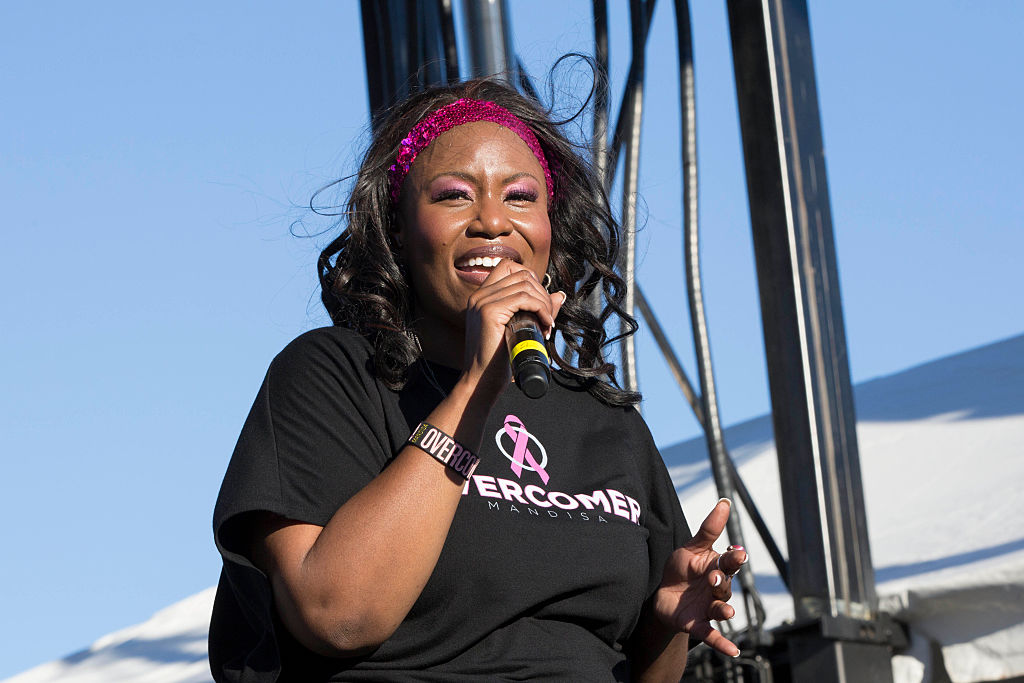As President Barack Obama prepares to deliver his nomination acceptance speech at the Democratic National Convention on Thursday night, a rainbow of constituents from across the country are gathering in Charlotte – a stark contrast from the overwhelmingly white Republican convention in Tampa.
When the network television cameras pan the packed convention hall in Charlotte, viewers get an instant sense of America’s racial demographics and its expanding multicultural community: African-Americans, Hispanics, whites, Asians, Arab-Americans, Muslims— or as former New York Mayor David Dinkins once called it: “a gorgeous mosaic.”
And what a powerful image on Wednesday evening: First Lady Michelle Obama, the first African-American First Lady, standing on the convention stage before a cheering multi-racial crowd that chanted its support for President Barack Obama’s re-election bid for the White House.
“Barack knows what it means when a family struggles,” Michelle Obama said. “He knows what it means to want something more for your kids and grandkids. Barack knows the American Dream because he’s lived it. And he wants everyone in this country, everyone, to have that same opportunity, no matter who we are, or where we’re from, or what we look like, or who we love.”
Michelle Obama practiced what she preached on Wednesday by reaching out to a diverse group of constituents during the Democratic National Convention: In separate appearances, Obama spoke to the African American Caucus, the Hispanic Caucus, the LGBT Caucus and the Women’s Caucus in an effort to mobilize an array of Democratic voters and citizens of color.
"And we, with our diversity and our differences, are all in this together. Let me be clear: when I say, "We," I am not just talking about black people," Rep. Emanuel Cleaver II, (D-MO) Chair of the Congressional Black Caucus, said in his address to the Democratic National Convention on Wednesday.
"When I say, "We," I am not just talking about people of color," Cleaver said. "When I say, "We," I am not just talking about Democrats. When I say, "We," I am talking about all of America: Americans who can barely afford to make ends meet; Americans who employ thousands and create jobs; Americans who are in K-12, college, grad school, and professional school; Americans of all walks of life. We mean us—Americans! Proud Americans!"
This week in Charlotte, Democrats are also using their prime-time convention to showcase issues that matter to African-Americans and people of color. (By the way, two Republicans in Tampa last week offered their version of diversity outreach by throwing peanuts at a black CNN camera operator, Patricia Carroll, while shouting: “This is what we feed animals.”)
So here are two significant initiatives that emerged from the Democratic National Convention this week – initiatives that Republicans would probably never promote.
• The Congressional Black Caucus Foundation released “Challenge the Status Quo: Academic Success among School-age African American Males,” on Wednesday. The new report examines a comprehensive strategy to ensure equitable resources, college and career readiness, and fair discipline practices for school-aged black males. The study challenges conventional wisdom on educating black males and uses national data to provide a picture of a productive school environment.
• Earlier this week, the Respect My Vote! Town Hall drew a large multi-racial crowd of young voters who learned how to protect their vote and organize their communities to turn out in the November elections. The national, nonpartisan conveners, Lawyers’ Committee for Civil Rights Under Law, Election Protection Coalition, Hip Hop Caucus, BET Networks, and the Charlotte School of Law, hosted a Town Hall between the RNC and the DNC Conventions, to show that young voters, voters of color, and others including elderly and disabled person are being targeted by voter suppression efforts to prevent them from voting in November.
Meanwhile, the Obama campaign says it will be the first political campaign in history to accept small-dollar donations through text messages.
Obama supporters with mobile phones will now be able to text “GIVE” to 62262, the campaign’s text short code, to quickly make small contributions, not exceeding $50 during any billing cycle for most carriers.
The service has already started for Verizon, Sprint, T-Mobile and U.S. Cellular customers, and with other carriers, including AT&T, anticipated to approve in the near future. Text message contributors will see their donations charged to a given month’s wireless bill.
Democratic leaders are keenly aware that since the black unemployment rate remains at an unacceptable 14.1 percent, many African-Americans cannot afford to donate as much money to Obama as they did in 2008. Still, the Obama campaign is focused on soliciting small donations to make it easier on folks who want to contribute something.
“Grassroots giving is powering this campaign,” said Obama Campaign Manager Jim Messina. “Since April 2011, more than 2.7 million people have pitched in to own a piece of the President’s campaign, and last month 98 percent of donors gave less than $250. Accepting small donations by text message will help us engage even more grassroots supporters who want to play a role by donating whatever they can afford to the campaign – and get the President re-elected in November.”
















